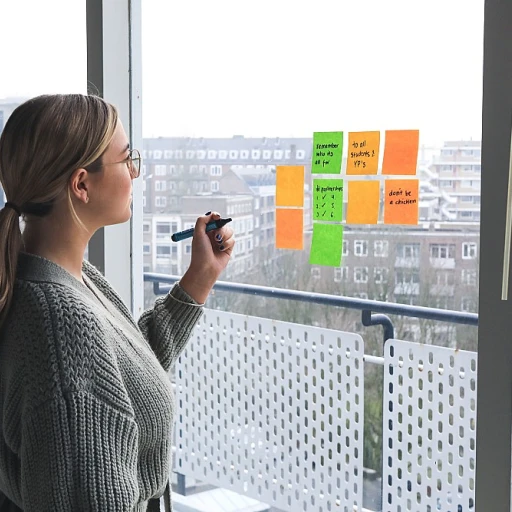Understanding the Procurement Process
Grasping the Essentials of Procurement
Understanding the procurement process is fundamental for any business aiming to thrive in New Zealand's competitive market. Procurement involves the strategic acquisition of goods and services, ensuring that businesses meet their operational needs efficiently and cost-effectively. This process encompasses everything from identifying needs and selecting suppliers to negotiating contracts and managing supplier relationships.
In New Zealand, procurement is not just a transactional activity; it is a critical component of supply chain management that helps businesses maintain a competitive edge. Effective procurement processes can significantly reduce costs and improve service delivery, ultimately enhancing overall business performance.
To navigate the procurement landscape successfully, businesses must consider several key elements:
- Supplier Selection: Choosing the right suppliers is crucial. This involves evaluating potential suppliers based on their ability to deliver quality products and services on time and at a competitive cost.
- Contract Management: Once suppliers are selected, businesses must manage contracts effectively to ensure compliance and performance.
- Supplier Performance: Regularly assessing supplier performance helps in maintaining high standards and fostering strong supplier relationships.
- Data-Driven Insights: Leveraging procurement software and data-driven insights can optimize decision-making and enhance procurement efficiency.
For those interested in the technical aspects of procurement, understanding conduit runs on electrical plans can provide valuable insights into the logistical considerations involved in the procurement process. For more information, visit this guide.
Challenges in New Zealand's Procurement Landscape
Complexities in the Procurement Landscape
New Zealand's procurement landscape presents unique challenges that businesses must navigate to achieve efficiency and cost-effectiveness. The geographical isolation of the country often results in extended shipping times and increased delivery costs, making the supply chain management a critical focus for companies. This can impact the procurement process significantly, as businesses strive to maintain a balance between timely delivery and cost management.
Supplier Management and Relationships
Establishing strong supplier relationships is crucial for overcoming procurement challenges. The limited number of local suppliers can lead to a dependency on international partners, which requires robust supplier management strategies. Businesses need to foster transparent communication and build trust with suppliers to ensure a reliable supply of goods and services. This is where business technology plays a pivotal role, offering data-driven insights and real-time monitoring of supplier performance.
Data-Driven Decision Making
Leveraging procurement software and tools helps businesses in New Zealand make informed decisions by providing real-time data and analytics. This data-driven approach enhances decision-making processes, allowing companies to anticipate potential disruptions in the supply chain and adjust their strategies accordingly. Procurementnation platforms offer key features that support efficient purchasing and supplier management, ultimately improving the overall procurement process.
Strategies for Effective Procurement Management
Enhancing Procurement Efficiency
Effective procurement management is crucial for businesses in New Zealand to streamline their operations and improve their bottom line. By focusing on key strategies, companies can optimize their procurement processes and overcome common challenges in the supply chain.
One of the primary strategies involves building strong supplier relationships. Engaging with suppliers as partners rather than mere vendors helps businesses to negotiate better terms, ensure timely delivery, and improve supplier performance. This approach not only enhances the procurement supply but also fosters a more resilient supply chain.
Another critical strategy is leveraging procurement software and tools. These platforms offer real-time data and insights that are invaluable for decision making. By utilizing procurementnation shipping platforms, companies can track shipments, manage costs, and ensure that goods and services are delivered efficiently. This data-driven approach allows for more accurate forecasting and better chain management.
Additionally, businesses should focus on cost management and efficiency. This can be achieved by implementing data-driven insights to identify areas where costs can be reduced without compromising on quality. Streamlining the purchasing process and optimizing supplier management are key features that can significantly impact the overall efficiency of the procurement chain.
Finally, fostering a culture of continuous improvement within the procurement team is essential. Regular training and development sessions can help staff stay updated with the latest trends and tools in procurement management. Encouraging feedback and innovation can also lead to more effective procurement processes.
For office managers looking to empower their teams and enhance collaboration, exploring how they are shaping team dynamics can provide valuable insights into effective procurement management.
Leveraging Technology in Procurement
Integrating Technology for Streamlined Procurement
In the fast-paced world of procurement, leveraging technology is no longer optional; it is essential for businesses aiming to enhance efficiency and effectiveness. New Zealand companies are increasingly adopting advanced procurement software and tools to streamline their processes, reduce costs, and improve supplier relationships.
Technology helps businesses manage their procurement processes by providing real-time data and insights, which are crucial for decision making. With the right tools, companies can monitor supplier performance, manage supply chains, and ensure timely delivery of goods and services. This data-driven approach not only enhances the procurement supply chain but also optimizes the overall procurement management process.
Key Features of Procurement Software
- Real-Time Data: Access to up-to-date information allows businesses to make informed decisions quickly, enhancing the efficiency of the procurement process.
- Supplier Management: Effective tools facilitate better management of supplier relationships, ensuring that businesses can maintain strong connections with their suppliers.
- Cost Management: By providing insights into spending patterns, procurement software helps in identifying areas where cost savings can be achieved.
- Improved Delivery Tracking: Monitoring the delivery of products and services ensures that businesses can manage their supply chains more effectively.
As businesses continue to navigate the procurementnation landscape, the integration of technology into their procurement processes is proving to be a game-changer. By adopting these advanced tools, companies can not only enhance their procurement efficiency but also gain a competitive edge in the market.
Sustainability in Procurement Practices
Embracing Eco-Friendly Procurement Practices
In today's business environment, sustainability has become a critical component of procurement processes. For New Zealand companies, integrating sustainable practices into the procurement supply chain not only enhances brand reputation but also contributes to long-term cost savings and efficiency.
Key Features of Sustainable Procurement
- Supplier Relationships: Building strong relationships with suppliers who prioritize sustainable practices is essential. This involves evaluating supplier performance based on their environmental impact and encouraging them to adopt greener methods.
- Data-Driven Insights: Utilizing procurement software and data-driven tools can help businesses track and manage their environmental impact in real time, allowing for more informed decision-making.
- Products and Services: Choosing goods and services that are environmentally friendly can significantly reduce the carbon footprint of the procurement process.
Strategies for Implementing Sustainable Practices
To effectively integrate sustainability into procurement, businesses should consider the following strategies:
- Supplier Management: Engage with suppliers who are committed to sustainability and work collaboratively to improve their practices.
- Lifecycle Analysis: Conduct a thorough analysis of the entire lifecycle of products to identify areas where environmental impact can be minimized.
- Policy Development: Develop and enforce procurement policies that prioritize sustainability, ensuring that all purchasing decisions align with environmental goals.
Benefits of Sustainable Procurement
Adopting sustainable procurement practices can offer numerous benefits, including:
- Cost Savings: While initial investments in sustainable products may be higher, the long-term cost savings from reduced waste and energy consumption can be substantial.
- Improved Supplier Performance: Encouraging suppliers to adopt sustainable practices can lead to improved efficiency and delivery times, benefiting the entire supply chain.
- Enhanced Brand Image: Companies known for their commitment to sustainability often enjoy a stronger reputation and customer loyalty.
Case Studies of Successful Procurement in New Zealand
Real-World Examples of Procurement Excellence
In the dynamic landscape of New Zealand's procurement sector, several companies have set benchmarks by implementing innovative procurement processes and strategies. These examples highlight the significance of effective supplier management, data-driven decision making, and leveraging technology to enhance supply chain efficiency.
Streamlined Supplier Relationships
One notable example is a leading New Zealand retailer that revamped its supplier relationships to improve delivery times and reduce costs. By adopting a centralized procurement platform, the company was able to streamline its supplier management and enhance supplier performance. This approach not only helped businesses within its network but also improved the overall efficiency of its supply chain.
Data-Driven Procurement Strategies
Another success story comes from a tech firm that utilized procurement software to gain real-time insights into its purchasing processes. By analyzing procurement data, the company was able to identify cost-saving opportunities and optimize its supply chain management. This data-driven approach allowed the firm to make informed decisions, ultimately improving its procurement efficiency and reducing the time spent on manual processes.
Enhancing Sustainability in Procurement
In the realm of sustainable procurement, a New Zealand manufacturing company stood out by integrating sustainability criteria into its procurement processes. By prioritizing suppliers who offer eco-friendly products and services, the company not only improved its environmental footprint but also enhanced its brand reputation. This commitment to sustainability has become a key feature of its procurement nation strategy.
These case studies underscore the importance of innovative procurement strategies and the role of technology in transforming procurement processes. By focusing on supplier relationships, data-driven insights, and sustainability, New Zealand companies are setting a new standard in procurement excellence.











